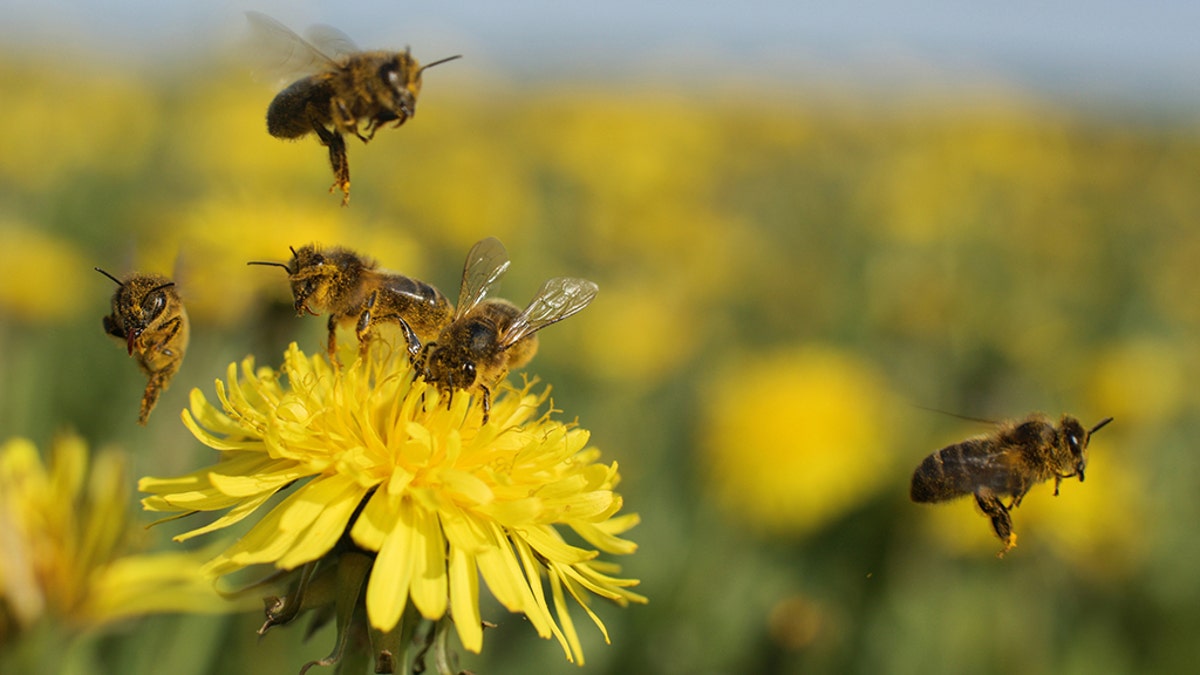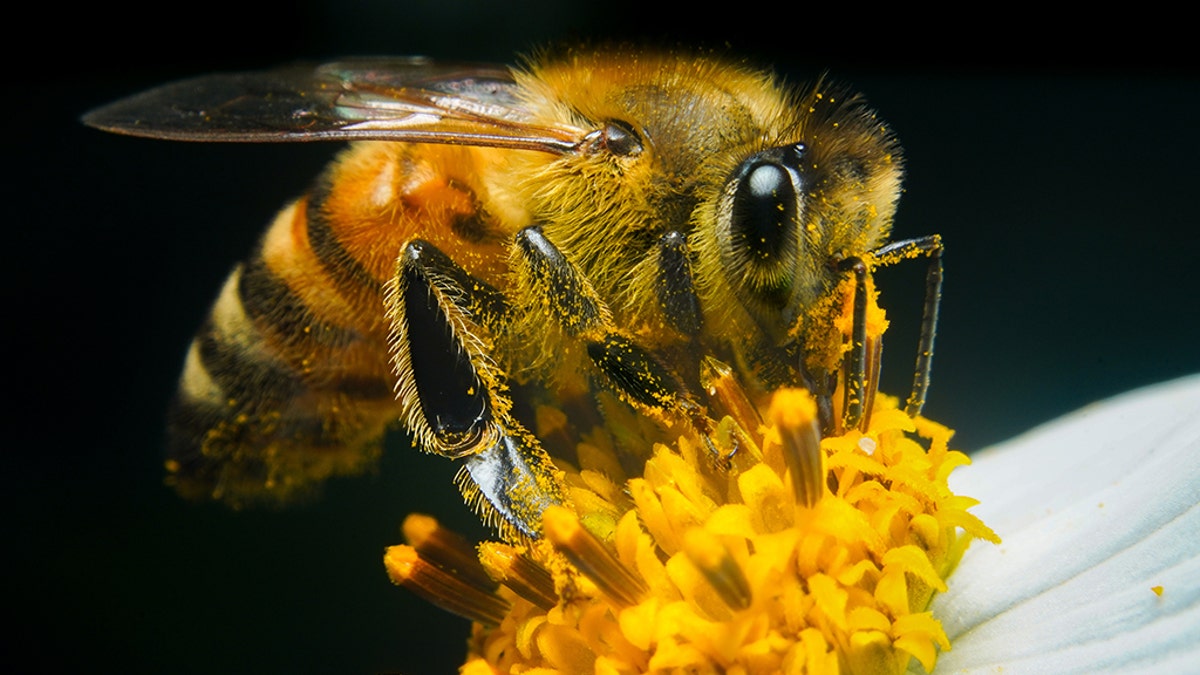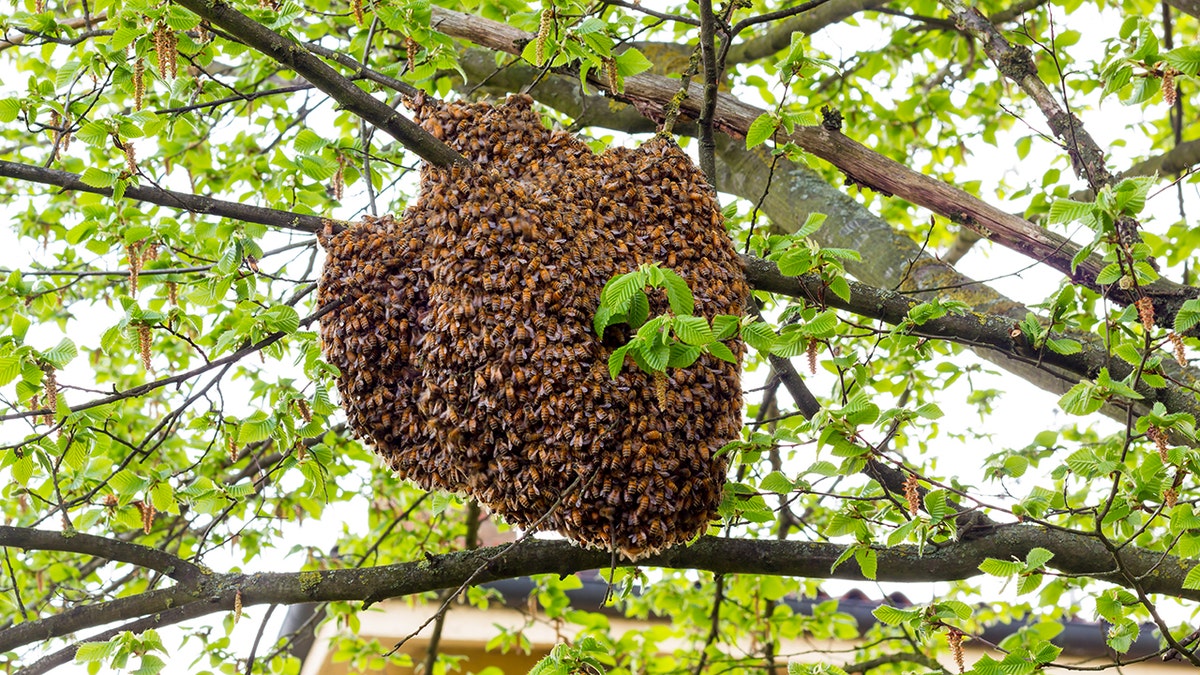Fox News Flash top headlines for July 2
Fox News Flash top headlines are here. Check out what's clicking on Foxnews.com.
More than 25 million bees were accidentally freed last week when a semitrailer holding the insects overturned on the interstate in Utah.
Bees were spotted swarming over interstate 80 on June 27 after the vehicle containing more than 200 beehives toppled over, FOX 13 Salt Lake City reported.
The bees stung several people, including the semitrailer's driver, first responders and others. The driver and a co-driver, who was in the vehicle, both sustained minor injuries but were transported to a hospital for treatment.
Some local beekeepers arrived at the scene and attempted to rescue as many bees as they could. But the owner of the hives would later call them off, saying the incident is now an insurance issue.
NYPD REMOVES 2,000 BEES FROM NEW YORK CITY RESTAURANT

More than 25 million bees were accidentally freed last week when a semitrailer holding the insects overturned on the interstate in Utah. (iStock)
"Unfortunately, more is damaged than not. Maybe 5% that’s salvageable," beekeeper Sam Cohen said, according to the Fox affiliate. "It’s sad to see."
Fellow beekeeper Mckay Opeifa said, "Every bee counts — you want to run up and see if we can help. There’s a lot of them that are dead already, so it’s kind of sad."
One lane on the interstate was closed for a few hours as crews tried to clean up the beehives. A hiking trail in the area was also shut down due to the swarm of bees.
NORTH CAROLINA COMPANY OFFERS TO PAY HOMEOWNERS TO RELEASE 100 COCKROACHES INTO THEIR HOMES

A bee sucking sweet honey with a macro. (iStock)
Utah Highway Patrol Lt. Randall Richey told The Washington Post that the driver said there was a loud bang prior the crash, suggesting there may have been a mechanical problem. However, a preliminary investigation found the driver was going too fast through curves, and he was cited for driving at a speed too high for conditions, Richey said.
The trucking company, which had been in contact with the bees' owner, notified firefighters of the incident on Monday. The company said the owner asked that they spray down the bugs with firefighting foam for safety and liability reasons, according to Richey.

Drone of bees
CLICK HERE TO GET THE FOX NEWS APP
Wasatch Beekeepers Association president Julie Arthur told The Post that the fire suppressant is lethal to bees and that only about 10 percent of them survived. She estimated that volunteer beekeepers saved 2.5 million bees.
The bees were to be used for pollination of food crops on the West Coast, Arthur said.










































